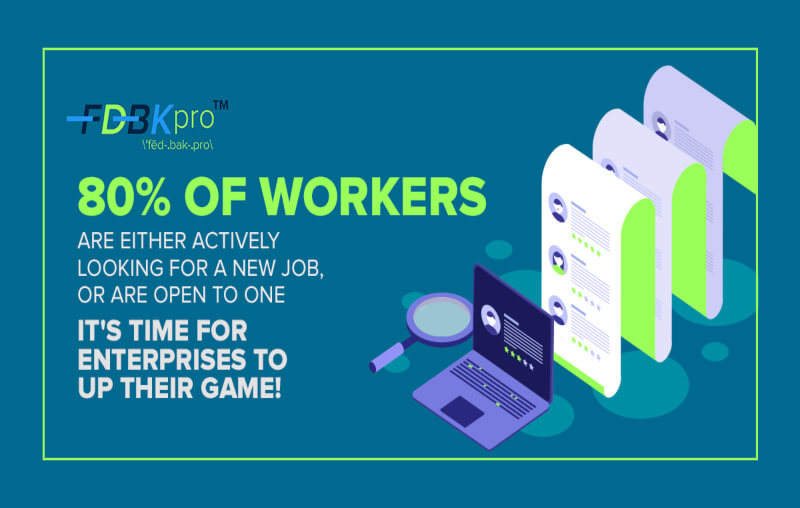“The mind is everything. What you think you become.” − Buddha
We have seen enough success stories of people who overcame extreme adversities to change their life situation for the better. Just like our personal lives, attitude and mindset play an important role in the enterprise environment as well. Self-improvement is imperative. And the path to self-improvement starts with having a growth mindset.
What is a growth mindset?
Simply put, a growth mindset is a belief that abilities can be nurtured and developed, leveraging dedication, and hard work. While some people might be naturally smarter or more talented than us, brains and talent are a mere starting point.
A growth mindset is also the belief that intelligence can be fostered, leadership can be developed, and talent can be nurtured. It is that tool that helps you believe that when you want to reach your true potential, you can.
Quite unsurprisingly, a growth mindset is an entrepreneurial trait and is often touted as the secret sauce of entrepreneurial success. These people are dedicated to continuous learning. They view failure as an opportunity to learn. Their mistakes are not signs of failure, but points of improvement. They believe self-development never stops.
Encouraging a growth mindset amongst employees is only beneficial for organizations as the employee›s success at work is directly proportional to organizational success.
Why is the growth mindset important for organizations today?
- Today’s environment of constant change demands organizations to send out the message of the growth mindset to their employees. It helps in creating a system that supports employees and helps them improve their skills and abilities. This leads to relational fulfillment and consequently, to professional success.
- We cannot ignore that organizations now must be ‘change agile’ since change is inevitable. New challenges and changes cannot be viewed as threats to traditional working styles but rather as new opportunities. Such a mindset helps employees remain continually adaptive rather than become adaptive for specific change events.
- A growth mindset also presents itself as a strong employee value proposition. It helps employees see and recognize their own value and their true potential. Instead of being focused on their shortcomings, employees then focus on their strengths and progress and target areas in which they can improve. This creates stronger connections and engagement that goes beyond the cosmetic level.
- Such a mindset also helps to foster a culture that encourages learning and innovation. It encourages experimentation, even if it might lead to failure. By making failure an option, the organization permits its employees to take risks that could deliver outsized gains.
Generally, an individual’s mindset surfaces in situations that are new and/or difficult. A person with a fixed mindset perceives this situation as a threat that leads to distress, the inability to listen, and consequently impacts rational decision making.
When they are in a state of the growth mindset, they look at the situation as a challenge that can be scaled, which leads to excitement and helps them be more resilient since they believe that they can learn and get better. This is so because people with such mindsets believe self-development and growth are natural elements of life. This mindset especially comes in handy in today’s climate of constant change because employees no longer see themselves as victims but more like co-pilots of organizational change efforts.
What can organizations do to develop an entrepreneurial growth mindset?
Teaching and talking to employees about the growth mindset is the starting point of this conversation. Along with that, this mindset has to be embedded in touchpoints across the employee’s organizational journey. It has to start at onboarding and then move on to performance management, high−value employee selection, and leadership development.
It can be easy to lose new learnings and habits. It becomes imperative for organizations wanting to develop a growth mindset to integrate these principles into talent systems and performance management processes. Organizations also have to proactively help their employees identify their potential, suitability, and growth areas leveraging behavioral skills analysis and 16 Personality Factor (16PF) Assessments.
But data without action is useless. Hence, it is equally essential to give them the tools to assist them in closing this chasm. Mentoring emerges as one such critical tool that helps you develop a growth mindset in your organization.
With more millennials joining the workforce, it becomes imperative to re−evaluate employee experience parameters and align these with what this demographic wants − purpose and growth. Millennials value investments made in their professional development and have shown that they will remain loyal to companies that give them opportunities to excel.
− Providing a robust mentoring platform to your employees gives them access to a wealth of information to navigate the challenges and roadblocks that come their way.
− Mentoring also works to support the growth mindset and helps mentees become problem solvers.
− Mentors also give the mentees actionable feedback − something that has a direct productivity impact.
− Mentoring conversations are about problem−solving, assessing which challenges to navigate, how to navigate them, how to plug information gaps, what more can be done, how to evaluate an idea, and what should be the starting point to determine if it’s going to be a success and so on.
− It also helps employees learn that failures are only opportunities to do better and to improve.
So, what are you doing, what strategies do you have in place to develop a growth mindset in your employees? We look forward to taking this conversation further. Contact us!

